What Is A CRM?
If you work in an industry that sells a product or service, then it’s more than likely you’ve heard the term ‘CRM’, or Customer Relationship Management.
Good CRM gives a company the ability to nurture, maintain and improve customer relationships whilst maximising general company efficiency in how they operate.
There are a number of CRM systems on the market which can help companies develop, maintain and improve their processes; but why should you be investing in a CRM system, and what options are out there today?
Get to really know your customers
You might have a fantastic product or service, but if you’re letting prospective customers fall through the cracks by not following up leads and enquiries, or marketing to an apathetic or (even worse) wrong audience, then you may as well give up, go home, make a cup of tea and ponder the very real prospect of cosmic heat death, the breakdown of the laws of thermodynamics and eventual collapse of the universe, rendering everything you’ve ever done to be ultimately futile…
Ok, perhaps that’s a little melodramatic. But looking after and really knowing your customers is a huge part of growing a business successfully. A good CRM system can allow you to build detailed customer data and accountability for your sales processes, and we’re not just talking about the obligatory name, phone number and reminder to call in a few weeks...
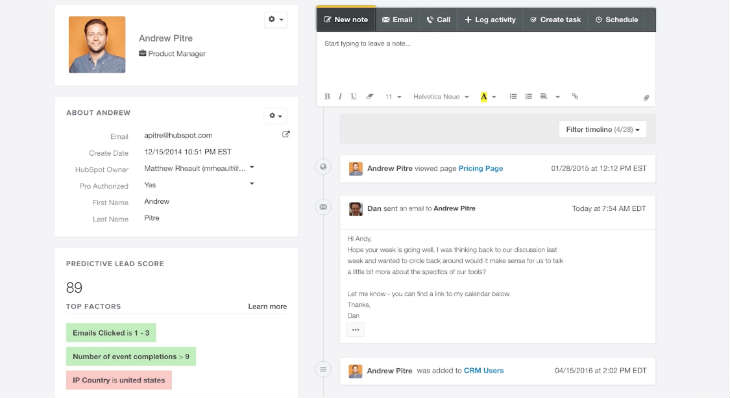
A system such as HubSpot allows you to cover all areas of customer interactions, from storing & tracking all inbound and outbound correspondence, to collecting data as to how customers interact with your social media campaigns, online advertising or website. It also gives accountability to tasks such as enquiry follow ups, meaning the chances of customers being forgotten about or not responded to are vastly reduced.
This information is invaluable when it comes to not just generating new customer leads, but also maintaining your current customer relations and learning how your core audiences react to your marketing efforts. Once you identify how you can market your business effectively, you can start turning those cold leads into valuable sales conversions.
Safety & Security
Today’s CRM systems also offer security when it comes to storing customer data. With an increasing emphasis on cyber security and data protection, it is critical that companies ensure the data they keep on customers — however trivial it may seem — is safely stored away and out of reach from nefarious individuals.
A decent CRM will often have thoroughly stable and secure file management allowing you to work in a paperless environment. This is not just good for security, but a pretty good deal for the planet, too.
Efficiency
The best CRM systems also allows you to consolidate and automate the more menial admin tasks which take up valuable time throughout the day.
Features such as e-mail tracking, auto follow-ups and form automation (invoice generation, for example) mean you can spend more of your time generating business, rather than dealing with all the time-consuming administration.
What types of CRM system are there?
Operational — an operational CRM covers all areas of both sales and customer relationship management.
A key part of a good operational CRM is sales automation, which gives the user a complete overview of their sales process, from initially entering prospective customer contact information, to converting them into a paying client.
It can also allow users to track customer responses to marketing materials and social media interactions (such as advert click-through rates and conversions), log their correspondence and store their complete sales history all in one place. This means that ultimately you can build pretty comprehensive behaviour and persona information about your ideal customers.
Analytical — analytical CRMs are more data-focussed systems, rather than sales & customer relationship management.
They use techniques such as data mining, correlation and data pattern recognition to analyse a company’s customer or product data and identify patterns, trends or consumer behaviours.
For example, an analytical CRM can analyse the sales data of a company and identify where perhaps it is not doing so well with a certain product with a particular audience type. This can allow the business to revise its sales strategies or reassess its products to better suit its target audiences.
Collaborative — a collaborative CRM is primarily designed for the sharing of data with multiple sources and internal organisations.
If you’re dealing with a project, product or service that involves many different departments, stakeholders, suppliers or vendors, using a collaborative CRM can make the collection and sharing of information between these sources a lot more streamlined and efficient. It also means you can store everything in one place, so no more wondering where you’ve saved those design amends or client briefs from an e-mail you received four weeks ago…
What CRM systems are out there?
Now, there are a whole lot of CRM systems on the market; SAP, Zoho, Capsule and Pipedrive to name but a few. Each one has it’s own strengths and speciality, but for this blog, we’ll take a look at a just a small selection.
Salesforce
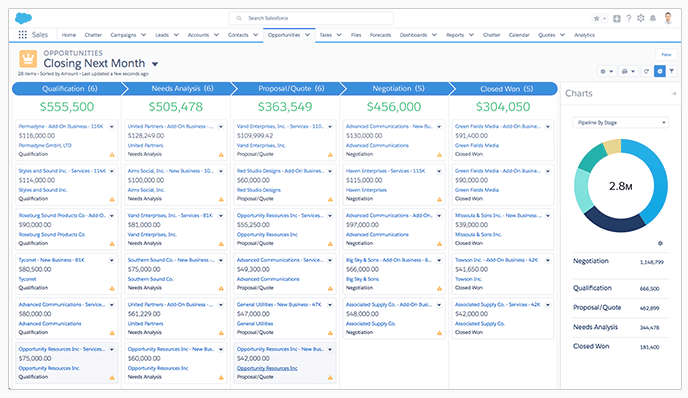
Salesforce is probably the most widely-known CRM system on the market and is a popular choice with small, medium and large enterprises.
Whilst it focusses primarily on the operational-side of customer management, the platform now includes a lot more analytical and data-focussed features which can help businesses to identify product sales trends and consumer behaviour traits. It has also developed a more medically-focussed platform called Health Cloud which uses the key principles of its sales-based CRM, but uses it for the management of clinical and care data for patients at both private and public health centres.
HubSpot
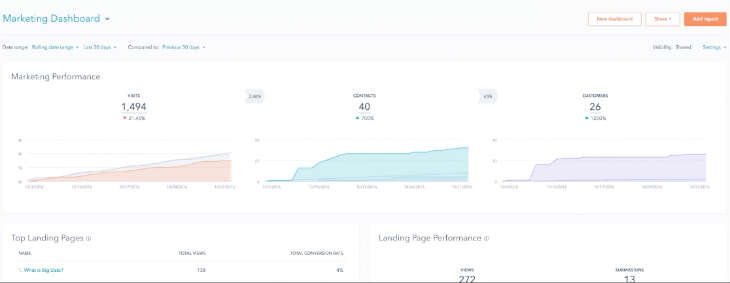
As a HubSpot partner, we can fully vouch for the effectiveness of their CRM platform!
Developed for companies looking to grow and expand their customer base, it is especially adept with the implementation, monitoring and improvement of inbound marketing methodologies, as well as the automation and tracking of customer correspondence and promotional materials.
HubSpot’s standard features allow you to generate and nurture leads effectively whilst maximising productivity. If you’re looking for a free CRM which covers all the bases when it comes to inbound and digital marketing, then you can’t really go far wrong.
Zizo
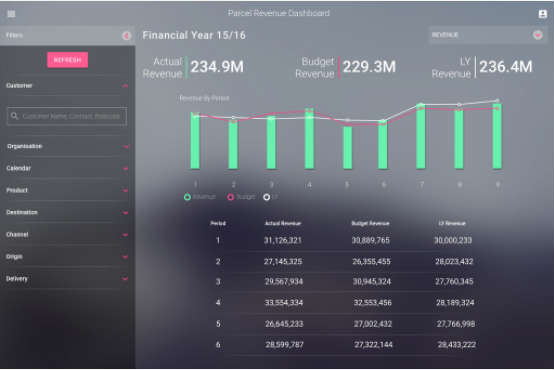
Zizo’s cloud-based platform falls primarily into the ‘analytics’ end of the CRM spectrum.
Using cloud-based software, the Zizo CRM systems focus on the big data generated by companies when buying and selling their products or services. This allows a business to analyse where there could be peaks and troughs in their sales, and the reasons behind why this may be — it’s all very clever stuff!
Their solutions have proven very popular in both the insurance and logistics industry, where raw data plays a huge part in both efficiency and cost analysis.
Infusionsoft
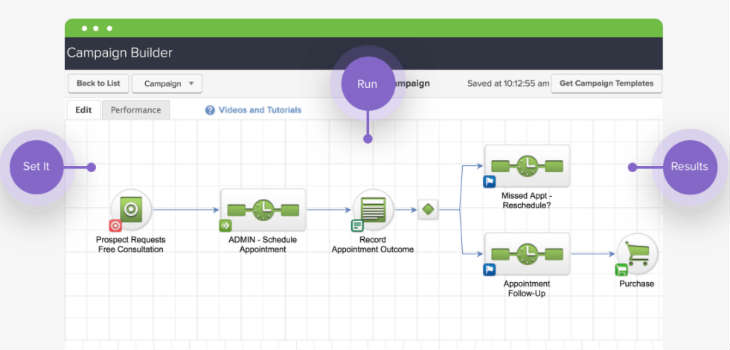
The Infusionsoft CRM platform has been developed primarily for small businesses who may not have the time or resources for a dedicated marketing or sales department to follow up leads or generate sales. Its platform makes the automation of tasks — such as invoice generation and e-mail acknowledgments — a lot less labour-intensive, whilst its simple interface makes the creation of marketing materials (such as e-shots) easy for novices.
As I mentioned earlier, there are a wealth of CRM systems available and it might be the case that your business will need something more specific or tailored for your market. When it comes to selecting the right CRM, do your homework, use trial versions (wherever possible) and take your time in reading online reviews so you make the best choice for your needs.
Whatever your industry, taking control of your customer relationship management is the first step towards growing a successful business.
Our content includes affiliate links. This means that we may receive a commission if you make a purchase through one of the links on our website. This will be at no cost to you and helps to fund the content creation work on our website.